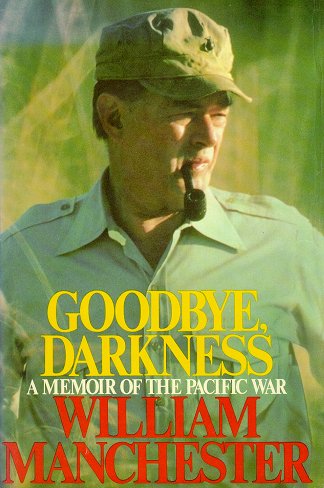June 1, 2004: Headlines: History: Legacy: Greatest Generation: Reverse Directory: Historian and Kennedy Biographer William Manchester dies at 82: "Goodbye Darkness" was personal history of the courage of ordinary men who were put in extraordinary circumstances
Peace Corps Online:
Peace Corps News:
Peace Corps Library:
Legacy:
June 1, 2004: Headlines: History: Legacy: Seattle Post Intelligencer: Historian and Kennedy Biographer William Manchester dies at 82 :
June 1, 2004: Headlines: History: Legacy: Greatest Generation: Reverse Directory: Historian and Kennedy Biographer William Manchester dies at 82: "Goodbye Darkness" was personal history of the courage of ordinary men who were put in extraordinary circumstances
Historian and Kennedy Biographer William Manchester dies at 82: "Goodbye Darkness" was personal history of the courage of ordinary men who were put in extraordinary circumstances

Historian and Kennedy Biographer William Manchester dies at 82: "Goodbye Darkness" was personal history of the courage of ordinary men who were put in extraordinary circumstances
Manchester was a Marine Corps Sergeant in an unorthodox front-line Intelligence unit during WW II. His baptism of fire was Okinawa where he was wounded twice -- once seriously -- during two months of combat. Most of the men in his squad were killed. Manchester strengthens my view that the U.S. Marines in World War II were among the finest combat soldiers that ever existed. But this is not a gung-ho book of combat tales of heroism and sacrifice. Manchester is equivocal about his service with the Marines and in the war. Writing the book was apparently a catharsis for him as he pours out feelings unexpressed for many years.
In the final pages of the book, Manchester gives his insight about the reasons the Marines were capable of taking casualties in excess of 50 percent without ever giving up. First, they had been tempered by the hardships of the depression; secondly, in WW II the whole generation was in the war together -- most of the Marines in his squad were Ivy Leaguers, FDR's sons were in uniform, and the sons of important politicians were being killed alongside the sons of sharecroppers --; and third, nationalism, "the absolute conviction that the United States was the envy of all other nations, a country which had never done anything infamous...." Contrast those examples of why the U.S. won WW II with the situation today in Iraq.

Some postings on Peace Corps Online are provided to the individual members of this group without permission of the copyright owner for the non-profit purposes of criticism, comment, education, scholarship, and research under the "Fair Use" provisions of U.S. Government copyright laws and they may not be distributed further without permission of the copyright owner. Peace Corps Online does not vouch for the accuracy of the content of the postings, which is the sole responsibility of the copyright holder.
Story Source: Reverse Directory
This story has been posted in the following forums: : Headlines; History; Legacy; Greatest Generation
PCOL11760
85
.

